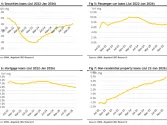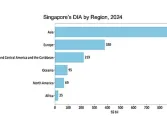
Only six out of 10 said they are ready to handle business risks: Aon survey
About three of 10 persons have been affected by last year’s top business risks.
In 2022, cyber-attacks or data breaches became the top business risk in the Asia Pacific (APAC) region, surpassing economic slowdown or slow recovery. Thus, 61% of respondents said they were ready to face these risks in 2023.
This shift is driven by increased awareness of the expanding cyber threat landscape, high-profile data breaches, and regulatory actions, according to Aon’s 2023 Global Risk Management Survey.
On the other hand, a mere 31% stated they have been affected by last year’s top 10 risks.
The Family Takaful achieved a 20.1% Penetration Rate, reflecting the growing popularity of takaful products in Malaysia.
The region's economic growth, although facing challenges, is expected to remain active, particularly in China and India.
Failure to attract or retain top talent rose to the fourth position in business risks for 2023, highlighting challenges in diverse labour markets and the need for companies to reimagine total rewards beyond salary.
ALSO READ: Only one in 10 S’porean platform workers think about retirement planning: Survey
Top 10 risks
Rapidly changing market trends, supply chain disruptions, and concerns around regulatory and legislative changes also feature prominently in the risks faced by businesses in the region.
Notably, climate change, cash flow or liquidity risk, environmental social governance (ESG), corporate social responsibility (CSR), and intellectual property (IP) risk are absent from the top 10 risks in APAC, despite their significant implications.
Looking to the future, managing cyber risks remains a top priority, emphasising the strategic importance of cybersecurity, especially in light of geopolitical tensions and technological advancements.
The top ten business risks for Asia Pacific according to the 2023 Global Risk Management Survey are:
- Cyber Attack/Data Breach
- Economic Slowdown/Slow Recovery
- Business Interruption
- Failure to Attract/Retain Top Talent
- Rapidly Changing Market Trends
- Supply Chain/Distribution Failure
- Regulatory/Legislative Changes
- Increasing Competition
- Failure to Innovate/Meet Customer Needs
- Commodity Price Risk/Scarcity of Materials
Failure to attract or retain top talent and rapidly changing market trends are expected to become even more critical risks.
Organisations are advised to adopt a holistic approach to cyber risk management, define a strong people strategy, and use parametric insurance to increase resilience to unique risk exposures.



















 Advertise
Advertise









